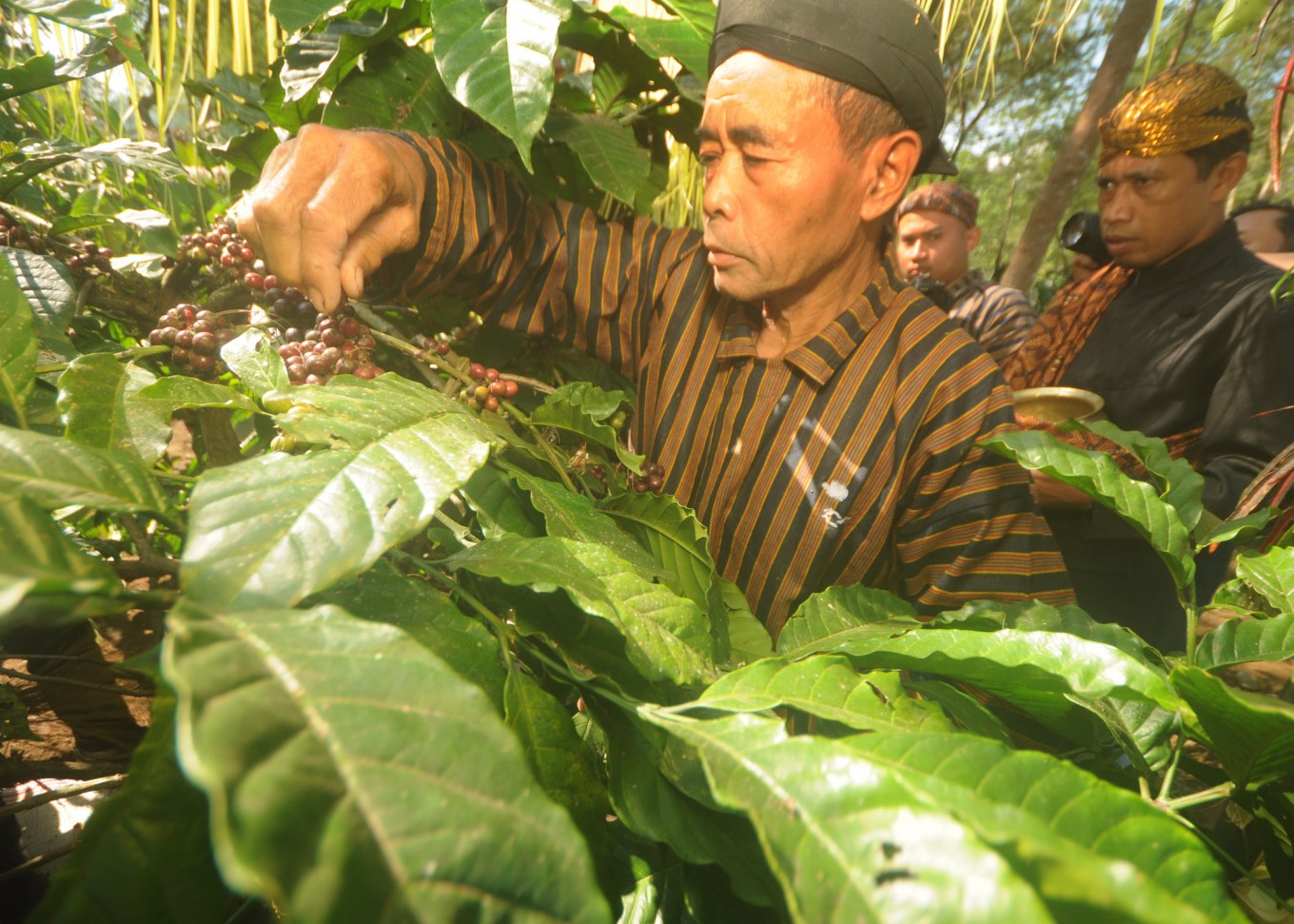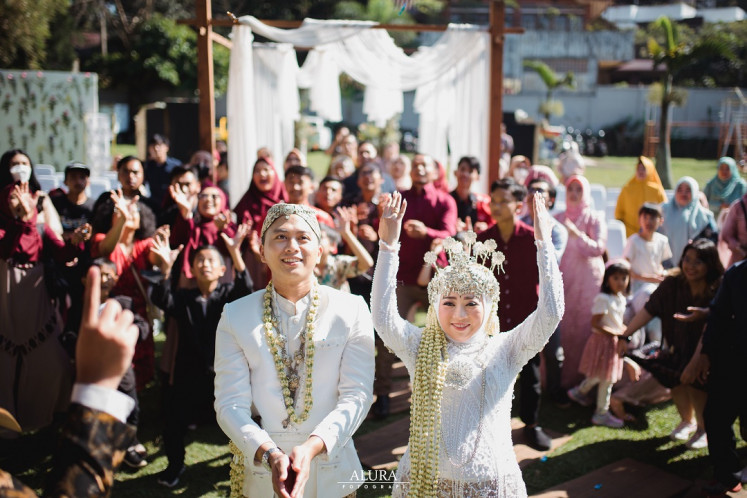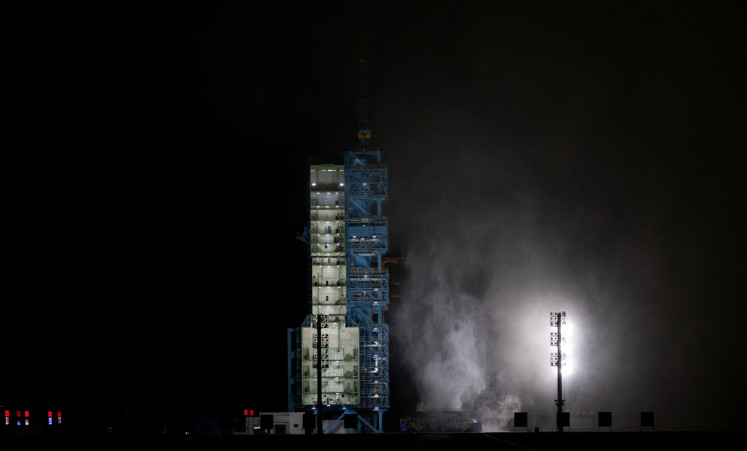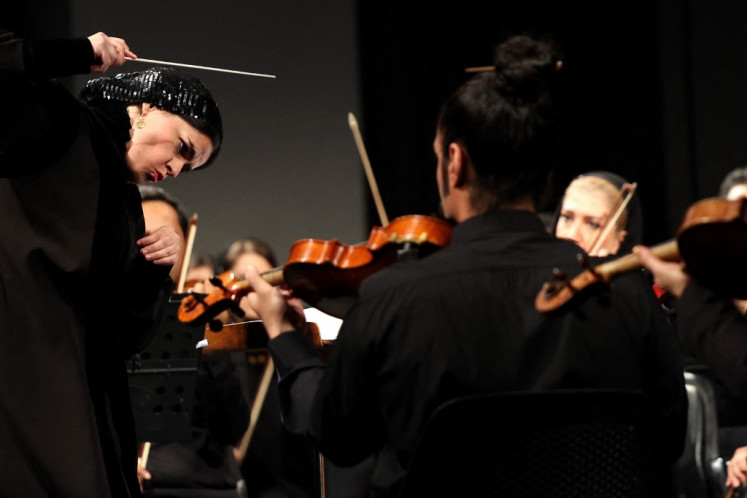Popular Reads
Top Results
Can't find what you're looking for?
View all search resultsPopular Reads
Top Results
Can't find what you're looking for?
View all search resultsUnique coffee harvest ritual held in Blitar
The Kawisari and Sengon coffee plantations are said to be some of the oldest farms in Indonesia.
Change text size
Gift Premium Articles
to Anyone
A unique harvesting ritual was conducted at two coffee plantations in Wlingi district, Blitar regency, East Java, on Saturday.
The Kawisari and Sengon coffee plantations are said to be some of the oldest farms in Indonesia.
Interestingly, this ritual involved a Javanese marriage ceremony of Nyai Sri Gondel and Joko Gondel as the bride and groom. They became the main characters in the coffee-picking ritual, preserved since 1870.
The event started with the participants praying together in both the Islam and the Hindu traditions, followed by a coffee-picking ritual. In the ritual, the bride and groom are actually 14 selected coffee beans, picked from the trees according to the advice of a shaman. The amount of beans picked was based on the Javanese calendar, which this time happened to fall on Sabtu Legi (Saturday).
After being picked and prayed upon, the coffee beans were placed in a special storage container called a bokor and then brought by the factory’s foreman to be paraded alongside a couple of male youths, Barongan dancers and female coffee farmers. Together, the group made their way to the coffee factory, located in Ngadirenggo village.
Welcomed by a couple of female youths, the “bride couple” Nyai Sri Gondel and Joko Gondel were given to the plantation’s head to be kept inside the coffee warehouse, or gerbusan, which serves as the bride room.
Such a ritual is held based on the locals’ belief that coffee fruit was created by a meeting between Nyai Sri Gondel and Joko Gondel, who served as a symbol of pistil and stamen. In Javanese culture, Joko is a male name, while Nyai and Sri are female.
Read also: Problems brewing in Tugu coffee grounds
Malang State University historian Dwi Cahyono said for the locals, the harvest of any agricultural farms was the fruit of a meeting between masculine and feminine elements.
“The ceremony is made as a marriage event that the public can attend,” he said.
Dwi added that such a marriage ritual basically offers two important aspects. One of them is a form of gratitude to God for the harvest blessing after hard work. “But the most important thing for them is the hope of soil fertility, so that the next harvest could be at least the same or better than before,” he said.
Dwi said Blitar coffee had a unique advantage as it sits on land beside Mount Kelud.
“Coffee enjoys volcanic materials, which resulted in a unique taste for the plant. Blitar coffee has been known for its quality since the colonial era, which led to the colonial government growing the not-so-large area into a regency and city,” he said.
The Kawisari coffee plantation sits at a height of 900 to 1000 meters above sea level; meanwhile, Sengon plantation is located below, at around 600 to 800 m. Managed by Tugu Hotel Group since the 1990s, both are flanked by Mt. Kelud and Mt. Kawi.
Tugu Hotel Malang public relations Richard Wardhana said the annual ritual was a part of the heritage of the locals.
“We are currently developing the ecotourism concept for these plantations so that tourists can learn how the coffee is processed, starting from planting to tasting,” he said. (kes)











